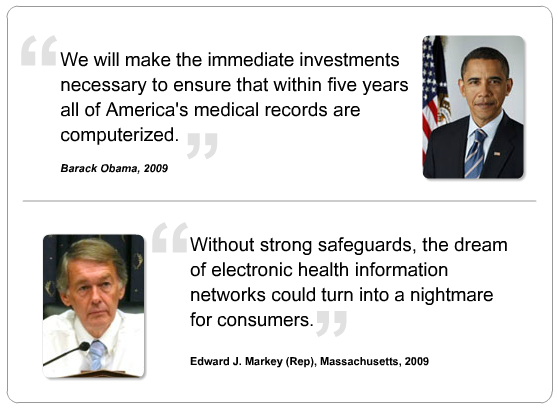Technology Diffusion
Technology diffusion can be defined as the process by which innovations are adopted by a population. Whether diffusion occurs and the rate at which it occurs is dependent on several factors including the nature and quality of the innovation, how information about the innovation is communicated, and the characteristics of the population into which it is introduced. Americans have come to demand state-of-the-art medical technology, despite its astronomical costs, and we place a huge emphasis on medical specialization. As we have seen, the coverage of health services by insurance companies actually creates a moral hazard to use high-cost services. And keep in mind "supply-side" competition—which can result in duplication of services and equipment.
to use high-cost services. And keep in mind "supply-side" competition—which can result in duplication of services and equipment.
The Technological Imperative
The mission of the Organisation for Economic Co-operation and Development (OECD) is to promote policies that will improve the economic and social well-being of people around the world. The OECD provides a forum in which governments can work together to share experiences and seek solutions to common problems.
|
|
You may want to browse the OECD site to see how other member and partner countries compare.
What is Information Technology?
The term Information Technology (IT) refers to an entire industry that uses computers and software to manage information. In some companies, this is referred to as Management Information Services (MIS) or Information Services (IS). The information technology department of a large company would be responsible for storing information, protecting information, processing the information, transmitting the information as necessary, and later retrieving information as necessary.
Applications of Information Techology
- Clinical information systems support patient care delivery, clinical decision-making, and clinical reports. It includes electronic health records and medical informatics. Telemedicine utilizes integrated applications of telecommunications and information technologies.
- Administrative information systems enable the organization to carry out financial and administrative support functions.
- Decision support systems provide analytical tools for managerial decision-making.
- Internet and e-health applications (see examples below).
Health Informatics
A brief definition of "informatics" is "information, communication of knowledge, transmission of knowledge, dissemination, diffusion." Health informatics is a rapidly emerging discipline within the health care system, and goes far beyond computer management of data. A slightly broader definition is "the knowledge, skills and tools which enable information to be collected, managed, used and shared to support the delivery of health care and to promote health."
Source: NHS Careers
Electronic Health Records (EHRs)

Our world has been radically transformed by digital technology – smart phones, tablets, and web-enabled devices have transformed our daily lives and the way we communicate. Medicine is an information-rich enterprise. A greater and more seamless flow of information within a digital health care infrastructure, created by electronic health records (EHRs), encompasses and leverages digital progress and can transform the way care is delivered and compensated. With EHRs, information is available whenever and wherever it is needed.
The Official Web Site for the Medicare and Medicaid Electronic Health Records (EHR) Incentive Programs
When fully functional and exchangeable, the benefits of EHRs offer far more than a paper record can. The Health Information Technology for Economic and Clinical Health (HITECH ) Act, a component of the American Recovery and Reinvestment Act of 2009, represents the Nation's first substantial commitment of Federal resources to support the widespread adoption of EHRs.
) Act, a component of the American Recovery and Reinvestment Act of 2009, represents the Nation's first substantial commitment of Federal resources to support the widespread adoption of EHRs.
Eligible Professionals Participating in the Medicare EHR Incentive Program
Basic Information
- The Program is a phased approach that began 2011 and will continue through 2016. Providers may enter at any point before or in 2015.
- Eligible professionals who demonstrate meaningful use of certified EHR technology can receive up to $43,720 over 5 continuous years.
- To qualify for incentive payments, eligible professionals must successfully demonstrate meaningful use for each year of participation in the program.
- Beginning in 2015, eligible professionals who do not successfully demonstrate meaningful use will be subject to a payment adjustment. The payment reduction starts at 1% and increases each year that an eligible professional does not demonstrate meaningful use, to a maximum of 5%"
Medicaid also has a program that will not be described here, as specific provisions vary by state.
Change can be difficult. Not everyone is finding the intended outcomes or benefits that were expected. Is this a learning curve or is it indicative of a bigger problem?
Some Excellent Resources
- Audio interview by National Public Radio on Computerized Medical Records Breed Discontent for Some Doctors. December 4, 2012. NPR. All Things Considered. Listen for what is described as the carrot and stick approach. What are the unintended consequences?
- A great blog on Health IT and related issues is Life as a Healthcare CIO. (The author, John D. Halamka, MD, MS, is Chief Information Officer of Beth Israel Deaconess Medical Center, Chairman of the New England Healthcare Exchange Network (NEHEN), Co-Chair of the HIT Standards Committee, a full Professor at Harvard Medical School, and a practicing Emergency Physician.
- A terrific source of information is the AHRQ site for Health Information Technology Tools and Resources. You may use these tools in your academic and professional work as long as there is appropriate citation.

